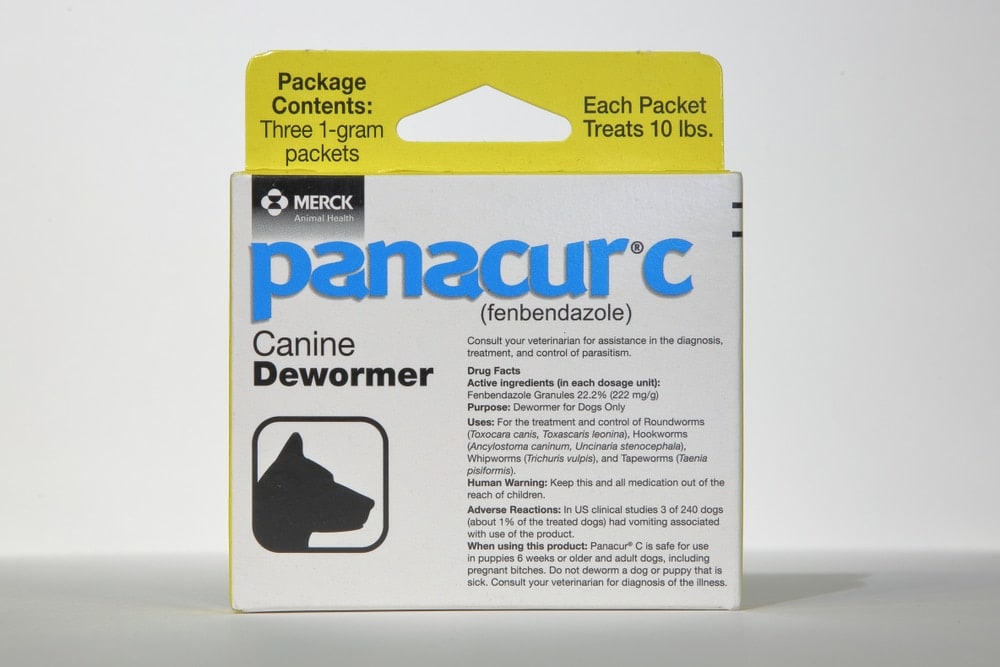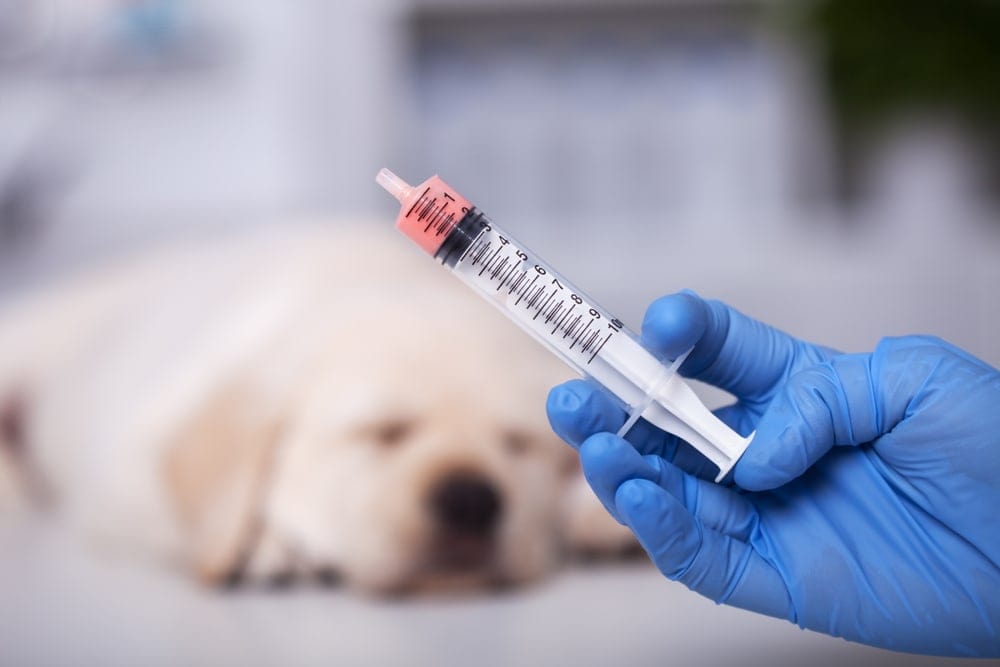Signs That Your Dog Has Worms
You will first want to learn about some of the signs of worms in dogs. While these worms can be visible in the dog’s stool, this is not always the case. This particular issue can present in the form of sudden weight less despite eating normally.
If a dog is not treated for worms, they may start vomiting or have diarrhea. You should also look out for lethargic behavior. When your dog is suddenly acting sluggish, there is most likely something wrong.
Another common sign of worms in dogs is scooting behavior. This is when a dog drags its butt across the floor in an effort to alleviate their discomfort. It is one of the telltale signs of worms and must be addressed.
If you notice any of these things with your dog, it is important that you get them into the vet’s office as soon as possible. The longer this problem goes untreated, the more dangerous it becomes for your pet.

Your veterinarian will most likely request a stool sample from your dog. They will examine the sample under a microscope to check for the presence of worms or their eggs. Sometimes a blood sample is taken, as it can also be used to diagnose this issue.
Some dogs develop heartworms, which are much more serious than most other kinds. This will require your veterinarian to run a blood test and perform X-rays to confirm the worms.
These tests can be expensive but are definitely worth it for your pet’s health. If left untreated, heartworms can cause serious illness and eventually death. The treatment for heartworms is a course of shots given over the course of two months.
The medication needed to get rid of heartworms is very powerful, which means the likelihood of side effects is significantly higher. It is important that you monitor your dog closely during the treatment period and a week or two after.

Deworming medication is typically administered orally in the form of a flavored treat. It completely kills all of the parasites within 24 hours.
Most of these medications are effective at eliminating all traces of roundworms, hookworms, and tapeworms. These are the most common worms that dogs are prone to getting.
Some of the medications that are given to dogs for deworming include praziquantel, fenbendazole, and epsiprantel. It is possible that you will have to administer treatment a second time if all of the worms are not killed in the first course.
It is extremely important that you follow all of your vet’s instructions when administering the deworming medication. This will prevent any unnecessary side effects or issues with your pet. The vet will most likely tell you exactly what to do, but it is a good idea to check the label of medication when you get home.
Not all dogs experience side effects after being dewormed, but some of them do. Most of these side effects are perfectly harmless and not a cause for concern.
You might notice a change in your dog’s appetite just after the deworming medication has been administered. This should pass within 24-48 hours, at which point they will get their appetite back and begin eating normally again.
If your dog continues to exhibit a lack of appetite after two days post-treatment, you should make an appointment to see your vet.
It is also fairly common for dogs to have diarrhea for the first day or day after receiving deworming medication. You shouldn’t immediately start worrying if your dog throws up either. Vomiting is another side effect that lots of dogs experience.
It is perfectly normal for dogs that get dewormed to defecate frequently for the first day or two following treatment. Their droppings might have a slightly abnormal appearance, but it is nothing to worry about.
Your dog might not be racing around the house as usual after being dewormed. This is to be expected, so you shouldn’t rush down to your veterinarian. If they still seem under the weather after 48 hours, it is a good idea to get them checked out.
Why Is My Puppy Not Eating After Deworming?
Your puppy is probably not eating after deworming because of the medication he’s been given. Common side effects apart from not wanting to eat include vomiting and diarrhea, any of which can cause your puppy to forgo his food temporarily.
Even if you don’t see any of the signs below, your puppy could still have an upset stomach and not want to eat.
Although deworming medication is essential for your puppy, it causes all parasites in the intestine or stomach to die at once.
Therefore, the lining of the intestines and the stomach walls will become inflamed, and your pup won’t want to eat.
Try Bone Broth
Offer your puppy bone broth. Warm bone broth smells delicious to your puppy, and it’s easy to digest. It provides lots of nutrients with little to no fiber.
If you are making bone broth yourself, let it cool in the fridge first so you can skim the fat off the top before reheating and serving.